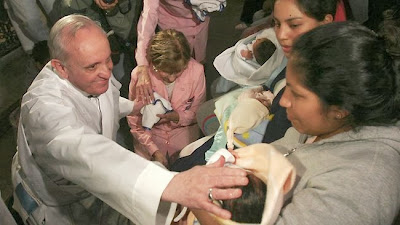 Right now I'm reading After You Believe: Why Christian Character Matters, a book on Christian purpose and ethics by N. T. Wright. In it he stresses over and over again the need for Christians to think out what it means to be "in Christ." The following quote displays one of the central arguments of the book, and one that should be taken seriously by all of us--we who stumble along through this lovely life claiming Jesus as Lord.
Right now I'm reading After You Believe: Why Christian Character Matters, a book on Christian purpose and ethics by N. T. Wright. In it he stresses over and over again the need for Christians to think out what it means to be "in Christ." The following quote displays one of the central arguments of the book, and one that should be taken seriously by all of us--we who stumble along through this lovely life claiming Jesus as Lord."Part of the problem in contemporary Christianity, I believe, is that talk about freedom of the Spirit, about the grace which sweeps us off our feet and heals and transforms our lives, has been taken over surreptitiously by a kind of low-grade romanticism, colluding with an anti-intellectual streak in our culture, generating the assumption that the more spiritual you are, the less you need to think.
"I cannot stress too strongly that this is a mistake. The more genuinely spiritual you are, according to Romans 12 and Philippians 1, the more clearly and accurately and carefully you will think, particularly about what the completed goal of your Christian journey will be and hence what steps you should be taking, what habits you should be acquiring, as part of the journey toward that goal, right now. Thinking clearly and Christianly is thus both a key element within the total rehumanizing process (you won't be fully human if you leave your thinking and reasoning behind) and a vital part of the motor which drives the rest of that process."









